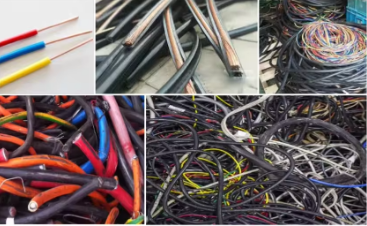

Ogo . 20, 2024 08:52 Back to list
The Importance of Municipal Solid Waste Sorting Lines
In the contemporary world, the growing concern over environmental sustainability necessitates effective waste management strategies. Municipal solid waste (MSW) sorting lines have emerged as essential components in managing waste efficiently and sustainably. These sorting lines play a crucial role in recycling, reducing landfill usage, and promoting environmental awareness.
Municipal solid waste consists of various materials, including plastics, metals, glass, organics, and textiles
. Often, these materials are intermingled, making it challenging to recycle or dispose of them properly. A sorting line is designed to separate these materials through a series of processes, making it easier to manage waste and divert recyclable materials away from landfills.One of the primary benefits of MSW sorting lines is their ability to enhance recycling efforts. By systematically sorting waste into different categories, these lines ensure that recyclable materials are not lost in the waste stream. For example, automated systems can identify and separate plastics from metals and organic waste. This increases the volume of materials that can be recycled, making it possible for municipalities to meet recycling targets and reduce overall waste generation.
Additionally, sorting lines contribute significantly to resource recovery. Many materials that are discarded can be reprocessed and reused in manufacturing, thus conserving natural resources. For instance, recycled plastics can be transformed into new products, reducing the need for virgin materials, which in turn lowers energy consumption and greenhouse gas emissions during production processes. The transition towards a circular economy is further supported by effective sorting operations that facilitate the recovery of valuable materials.

Moreover, MSW sorting lines play a vital role in reducing the environmental impacts associated with waste disposal. Landfill sites, which have traditionally been the endpoint for much of the waste produced, pose significant threats to ecosystems and human health. By diverting recyclable and compostable materials from landfills, sorting lines mitigate these risks. Diverting organic waste for composting not only reduces landfill mass but also produces nutrient-rich compost that can enhance soil health, thereby supporting sustainable agriculture practices.
The design and technology behind municipal solid waste sorting lines have also evolved significantly over the years. Modern sorting facilities utilize advanced technologies, such as conveyor belts, optical sorters, and robotics, which enhance efficiency and accuracy in the sorting process. These technologies enable facilities to handle larger volumes of waste while minimizing human error and potential exposure to hazardous materials. Consequently, investing in state-of-the-art sorting lines not only improves operational efficiency but also promotes worker safety.
Public awareness and participation are also integral to the success of municipal solid waste sorting systems. Community education programs can encourage residents to adopt better waste segregation habits at the source, making the sorting process more effective. When individuals understand the importance of sorting their waste correctly, the quality and quantity of recyclables entering the sorting line improve significantly.
In conclusion, municipal solid waste sorting lines are vital in promoting efficient waste management and environmental sustainability. By enhancing recycling efforts, enabling resource recovery, and reducing landfill dependency, these systems contribute to a cleaner environment and a healthier planet. As technology advances and public awareness grows, the effectiveness of these sorting lines will undoubtedly continue to improve, shaping a more sustainable future for all. It is imperative that municipalities invest in effective sorting systems and encourage community participation to maximize the benefits of waste management.
Latest news
Troubleshooting Common Eddy Separator Problems
NewsJul.04,2025
The Role of Metal Recycling Plants in Circular Economy
NewsJul.04,2025
The Impact of Recycling Line Pickers on Waste Management Costs
NewsJul.04,2025
Safety Features Every Metal Shredder Should Have
NewsJul.04,2025
How Industrial Shredders Improve Waste Management Systems
NewsJul.04,2025
How Cable Granulators Contribute to Sustainable Recycling
NewsJul.04,2025